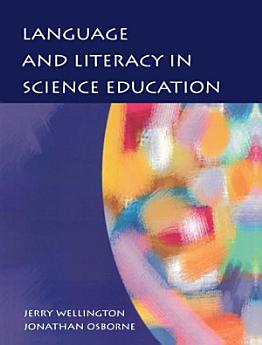Language and Literacy in Science Education
About this ebook
Jerry Wellington and Jonathan Osborne draw together and synthesize current good practice, thinking and research in this field. They use many practical examples, illustrations and tried-and-tested materials to exemplify principles and to provide guidelines in developing language and literacy in the learning of science. They also consider the impact that the growing use of information and communications technology has had, and will have, on writing, reading and information handling in science lessons.
The authors argue that paying more attention to language in science classrooms is one of the most important acts in improving the quality of science education. This is a significant and very readable book for all student and practising secondary school science teachers, for science advisers and school mentors.
Ratings and reviews
- Flag inappropriate
- Show review history
About the author
Jonathan Osborne is the Shriram Family Professor of Science Education at Stanford University. He started his career teaching physics in London schools before joining King's College London in 1985 where he worked until 2008, when he moved to Stanford. He has researched into the nature of science and argumentation, attitudes to science and science education for public understanding.






